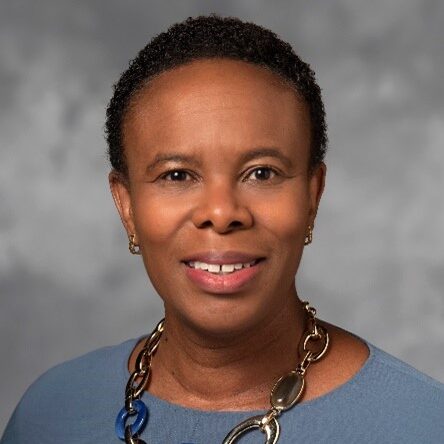Carladenise Edwards, PhD, is an accomplished health care executive with nearly three decades of health care, nonprofit and government experience. We are thrilled that she will be joining us on the main stage at the 2023 Summit, being held April 19-21 at the Ritz-Carlton, Laguna Niguel and Waldorf Astoria Monarch Beach Resort. We interviewed Edwards about the issues that are top of mind for her, advancing the health of the communities we serve, and what she’s looking forward to at the 2023 Summit.
Which industry issues are your greatest priorities in the next three to five years?
Our industry needs to focus on developing three things over the next 3 to 5 years:
- Standing up and sustaining a public health system that protects the nation from infectious disease, bioterrorism and the like
- Improving health system and hospital operations so that we can lower the total cost of care and improve access to the most vulnerable populations
- Establishing a competing system to the current health care or “sickcare” system that consist of investments in products and services that advance HEALTH (ie mental and physical well-being)
For CEOs looking toward the future, what should they be thinking about now to drive impactful change?
Current CEOs should stay focused on workforce issues at every level within the organization. Are we treating our employees well, are our wages and benefits competitive, is the work environment for frontline and administrative staff healthy and strong? Without a healthy and productive workforce the entire organization suffers. Secondly, CEOs should be prepared for implementing changes that enable them to play the long game. The disruptive forces that are putting pressure on their margins are only going to get stronger, so the CEOs in the “traditional” health care roles of provider and payer should be thinking about how to be the best in class and/or strategically partner with non-traditional health entities that are focused on advancing HEALTH. CEOs of non-traditional or the disruptive health entities should focus on pricing, division of labor and scale through partnerships. The CEOs of non-traditional entities should not look to hospital and health systems as customers, but as competitors if we are truly going to drive change.
What’re you looking forward to at this year’s Summit?
As always, connecting with friends and colleagues from across the nation who are laser focused on creating value and driving change in the health care ecosystem.
What keeps you coming back to the Summit?
The ability to engage in deep and meaningful dialogues with some of the smartest people I have ever met. I love the convergence of people focused on the economics, operations, technology and innovation, as well as clinical care improvements.
What advice would you offer to other women and/or people of color trying to shatter the glass ceiling?
As much as I want to see the correct portionality of women and people of color, who actually are the global majority, serving as key decision-makers, I would say that focusing on breaking the glass ceiling is the wrong goal. The goal should be advancing the health of our communities and being in a position where you can make a meaningful impact. My advice is to focus on bringing value and not forcing yourself into closed rooms, but create a new door to a new room where you set the table.










